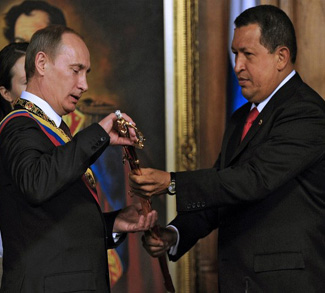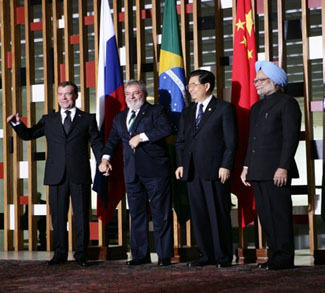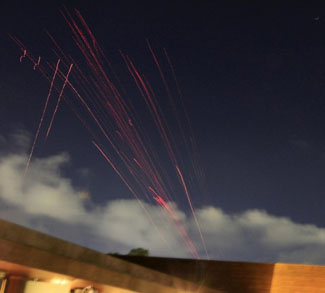2011 was poor for the Obama Administration in most of the Islamic world. Throughout the past twelve months, the Obama White House vacillated when it needed to take action, supported corrupt allies at the expense of progressive forces, and came to loggerheads with its most enduring allies in the region. The result is the impending decline of American influence in the Middle East and the broader Islamic world.
Caught completely unaware by the advent of the Arab Spring, Obama’s White House fuddled its way through the momentous wave of popular uprising that recast the political landscape of the Middle East. Popular uprisings against Egypt’s entrenched dictatorship were met by calculated silence from the Obama White House, fearful of losing one of its stalwarts in the Middle East. Only the inevitability of Mubarak’s ouster spurred the Obama Administration to condemn Mubarak’s repressive regime.
In Syria, the White House dragged its feet as the Assad regime perpetrated the worst human rights abuses since the outbreak of the Arab Spring. At the same time, Washington remained steadfastly, if somewhat silently, faithful to its Bahraini allies, even as the Bahraini Monarchy cracked down on dissidents in wave of violence and arrests.
Very public discord between the Obama White House and the Binyamin Netanyahu’s Israeli government led to cries in the U.S. that Obama is abandoning America’s most important ally in the region. Even more, bickering between the two nations emboldened the Palestinian Authority to press for recognition as a state on the floor of the UN; putting Washington in the unenviable position of having to condemn the PA’s rightful claim to statehood while trying reign in Israel’s illegal encroachments in the Occupied Territories. Throughout, Obama has somehow managed to appear uncertain and weak, even as the US supported its allies.
There is a parallel discord between Washington and Islamabad. Once a bed-rock of American influence in the region, American-Pakistan relations are being stretched to the limits by an irreparable clash of interests. For years, Islamabad has been colluding with the Taliban and other Islamic political groups as a means to exert regional influence. Not surprisingly, Islamabad’s cozy relationship with the very forces Washington is trying so desperately to obliterate has enraged the White House.
This development is significant for two very important reasons. First, Islamabad is in the process of replacing its ties to Washington with ties to Beijing, which has invested billions of dollars in the Pakistani economy and is pursuing shared military initiatives with its Western neighbour.
Alongside China’s push into Pakistan, Russia is once again reasserting itself in Middle Eastern affairs. Since Vladimir Putin announced in September of 2011 that he is seeking the Russian presidency, the Kremlin has ratcheted up its involvement in Middle East affairs by vetoing UN resolutions against Syria’s Assad regime and returning to Cold War style anti-Western rhetoric. Putin recently announced that the Russian government will invest heavily in missiles and aircrafts to address perceived power imbalances between Russia and the West.
Pakistan, most experts agree, is forever teetering on the brink of political anarchy. Rife with political corruption, sectarian violence, ethnic divides, and poverty, the country is a breeding ground for political ferment that threatens to spill over into the entire region.
A January 2009 Pentagon report argued that the demise of the Pakistani government would most likely be rapid and sudden, with very little warning. “Collapse,” the report continued, “would carry with it the likelihood of a sustained violent and bloody civil and sectarian war, an even bigger haven for violent extremists, and the question of what would happen to its nuclear weapons.” As such, “that ‘perfect storm’ of uncertainty alone might require the engagement of U.S. and coalition forces into a situation of immense complexity and danger.”
Beyond fears of Pakistan’s collapse, the Pakistani government has shown almost no ability to control its fiercely independent Islamic collaborators. Coupled with the rise of Islamic forces such as the Muslim Brotherhood throughout the region, most notably in Egypt, Syria, and Tunisia, the region has witnessed a revival of political actors whose mission it is to overthrow US-friendly government in favor of radical Islamic rule. Conflict in Syria threatens to ignite sectarian violence throughout the region.
More and more, American hegemony in the Middle East is a thing of the past. The region is seething with hostile political actors, jostling to weaken Washington as a regional player. Sooner rather than later, America will have to end its foray into Afghanistan, already the longest war in American history. A faltering economy dictates that Washington will have to withdraw its overburdened troops in the region. Parallel to Washington’s demise, the Middle East’s ‘arc of instability’ is in fact growing exponentially, and will continue to do so for the foreseeable future.




